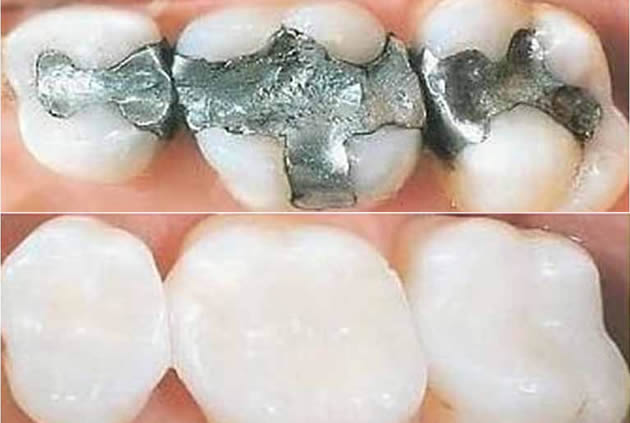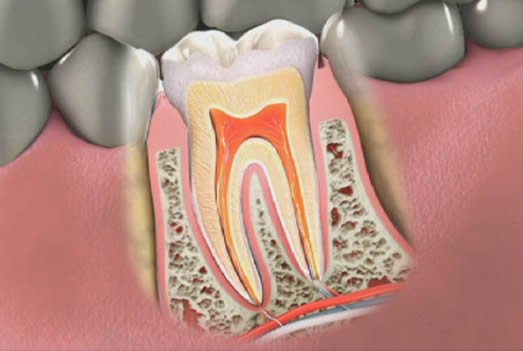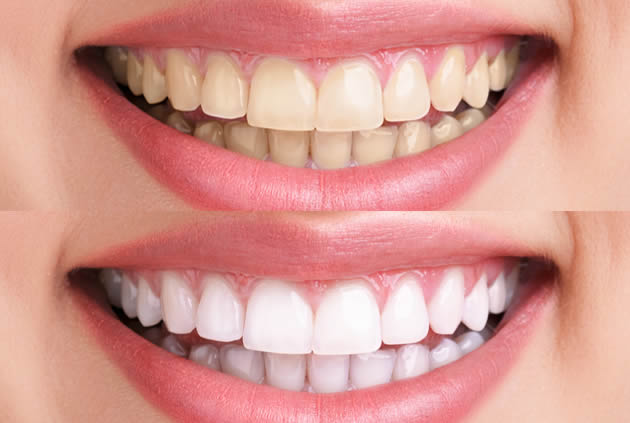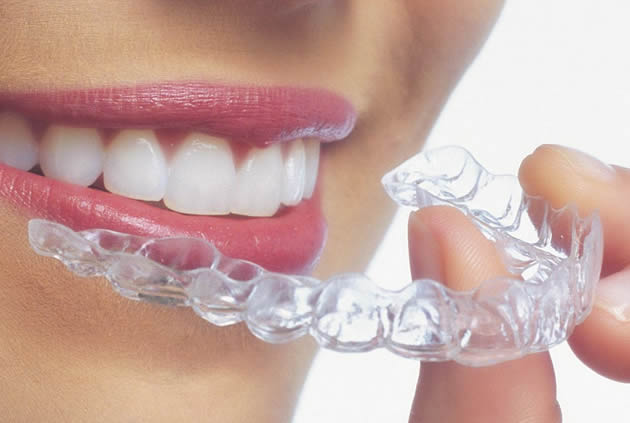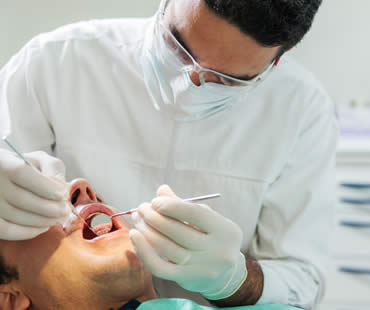
It’s easy to put off a trip to the dentist if you’re not experiencing any pain or noticeable issues. Maybe it’s inconvenient in your busy schedule, maybe you don’t want to spend the money, or maybe you experience anxiety about dental visits. None of these are good enough reasons to forego proper dental care so that you ensure a healthy mouth and attractive smile.
Having regular checkups with your general dentist is important for a variety of reasons. Probably the most beneficial reason is to catch problems early, before they have time to become serious and negatively impact your oral health. Cavities and gum disease are both examples of issues that can wreak havoc in your mouth if left untreated, but if handled quickly they may disappear with as little as a fluoride treatment or change in your hygiene routine. Avoiding treatments like fillings, crowns, or root canals – not to mention the associated costs to your wallet and your schedule – are great reasons to see your dentist every six months!
Another benefit of regular checkups is a brighter, more beautiful smile. Even the best dental hygiene at home can’t reach every bit of plaque or tartar that accumulates on your teeth. Professional cleanings eliminate buildup to give you a more appealing smile, as well as removing harmful and stinky bacteria from your mouth.
Your overall health also reaps the rewards of consistent dental care. Oral problems can impact your general health through things like introducing dangerous bacteria into your body that can spread and cause various health risks. Also, your dentist may notice signs of health issues you might not realize, such as cancers or diseases or nutritional deficiencies.
Make your smile a priority and visit your general dentist regularly. Don’t let excuses get in the way of receiving the rewards dentistry has to offer.
If you live in the Baltimore area contact us today

Maintaining a healthy, winning smile is easy with the help of general dentistry. People have all kinds of excuses for avoiding dental checkups. Don’t have the time? Advancements in procedures make treatment faster and more efficient, and extended hours allow patients to better fit appointments in their schedules. Too expensive? Many procedures are reasonably priced and most offices offer financial plans. Afraid of the dentist? General dentistry offers options for maintaining patient comfort and minimizing pain.
Once you realize there is no good excuse for skipping dental treatment, you should go for checkups twice a year for optimum care. Prevention is often the key to having the best oral health. Routine checkups identify early warning signs of issues like tooth decay or gum disease, so that problems can be corrected before becoming severe. Thorough examinations, diagnostic tests like X-rays, and regular professional cleanings are all steps to a healthy smile.
General dentists also teach proper hygiene methods so that you can keep your mouth in good shape between checkups. Routine dental care also may prevent harmful bacteria from entering your bloodstream and damaging other parts of your body.
If problems are diagnosed when you visit your dentist, various treatments can be performed to restore your oral health. General dentists treat all kinds of issues and typically offer dental fillings, root canal therapy, extractions, bonding, crowns, dentures and more. If there are procedures that you need that your general dentist doesn’t perform or would prefer you visit a specialist for advanced treatment, you’ll be referred to a qualified and experienced doctor.
General dentistry can make the difference between a dull, damaged, unhealthy smile and one that will look nice and function well for the rest of your life. Don’t hesitate in visiting your dentist regularly for optimum oral health.
Schedule your appointment at our Baltimore dental office

The fact is that the health care provider most people should see the most is their general dentist. Because this branch of healthcare is uniquely targeted at preventing disease and promoting good hygiene, general dentistry can help you avoid oral concerns and maintain a healthy and attractive smile.
General dentists are the most common providers for dental treatment for patients of all ages. Routine dental visits involve examinations, sometimes diagnostic tests, professional cleanings, and discussions about concerns. If your checkup reveals issues that require further treatment, most general dentists perform required procedures. However, your general dentist may refer you to a specialist for complex treatments.
What does a general dentist do? Differing from specialists who focus on a certain area of oral care, general dentists offer a wide variety of services.
- Preventive services – The goal of preventive dentistry is to stop disease before it has a chance to progress. Regular exams, diagnostic images, and professional cleanings are part of prevention. Proper oral hygiene techniques will also be discussed.
- Restorative services – Procedures for dental problems falls into this category, including fillings, crowns, gum disease remedies, dentures and more. Some general dentists also offer specialized treatments like root canal therapy and dental implants.
- Overall oral health services – Some dental problems are reflected in overall health concerns. Diabetes, cardiovascular disease, pregnancy complications and other problems may arise. General dentists can identify issues like these and offer treatment or direct you to the right specialist.
- Cosmetic services – Many general dentists offer cosmetic treatments such as dental veneers, teeth whitening, bonding, orthodontics and more.
When should you visit your general dentist? Experts recommend getting checkups every six months, or more often if you have an issue that should be addressed like a toothache or gum bleeding. Cosmetic appointments can be made at any time. The main thing is seeing your general dentist regularly so you can benefit from preventive care.
If you need a dentist in Baltimore contact us today

It’s no joke that some people are afraid of going to the dentist. There’s even a word for this fear: dentophobia. It can prevent you from getting preventive care, diagnostic tests, or restorative treatments, all of which are vital in maintaining good oral health. If you suffer from dentophobia, what can you do so that you’re able to visit your general dentist?
The first step is educating yourself about the process. Fear of the unknown may be what’s stopping you from visiting the dentist. Schedule an appointment, get a tour of the office, ask about the equipment being used, and learn about common procedures. Take the time to meet the dentist and staff so that you can obtain a comfort level with the caregivers.
If knowledge isn’t enough to ease your dental fears, ask our general dentist about medications available that will allow you to successfully get treatment without having too much anxiety. Sedation dentistry is offered by many general dentists today, which offers various levels of sedation. Nitrous oxide (or laughing gas), oral medications, or even general anesthesia are often available depending on your needs and concerns.
Many dental offices provide relaxation aids to make patients more comfortable. These may include listening to music through headphones, watching videos, lap blankets to increase comfort, and more. You might also want to invite a friend or family member along as a source of support throughout your appointment. Consider rewarding yourself after a successful appointment by going to lunch afterwards or treating yourself to a favorite item like ice cream or a pedicure.
If your dentophobia still isn’t controlled with these techniques, a professional psychologist may be able to suggest breathing techniques or other relaxation methods to help. Sometimes identifying the root of your fears can help you overcome them as well. The main thing is to figure out a way to be able to visit your general dentist and get the care you need for a healthier smile.
If you need a dentist in Baltimore contact us today

Don’t put off choosing a general dentist until an emergency forces you to seek care from any dentist you can find. A better choice is to select the right dentist for you and your family who meets all your needs and to get established with regular checkups and consistent care. When searching for a general dentist, here are some guidelines to help you through the process.
Services:
Ask what procedures and treatments that the dentist offers. Make sure that the services you’re interested in are provided and that the dentist has experience in performing them. Typical services available through many general dentists include professional cleanings, X-rays, fillings, bonding, root canal treatment, teeth whitening, veneers, dental implants, and more.
Qualifications:
Check to see that the dentist has the proper education and training to be practicing, as well as a valid license. Look for a dentist who pursues continuing education in order to maintain the latest and most efficient skills.
Location:
You are more likely to keep your appointments if the dental office is located near your home or work. This makes stopping in for checkups easier with less impacts on your busy schedule.
Comfort:
Personal comfort is one of the most important aspects of your dental visits. Not only should the office environment be comfortable and appealing, your interactions with the dentist and staff should also make you feel at ease. Look for professionals who listen to what you have to say and address all of your concerns. Nerves are a common part of dental visits for many people, so find a dentist who makes you feel relaxed and more likely to return for care.
Policies:
Ask questions about various policies of the dental office such as hours, emergency care, financial responsibilities, insurance plans, and any other policies that might affect you.
Our dental office is located in Baltimore

Dental crowns and bridges were originally made to fix terribly damaged or missing teeth. No matter how your teeth have been damaged, crown and bridge restorations can help to restore your beautiful smile.
Even one missing tooth can cause surrounding teeth to shift and create a crooked smile. Missing and broken teeth can also cause problems speaking and chewing. One of the best options for restoring function and improving the aesthetics of your smile are dental crowns and bridges.
Crowns are placed over a tooth to help restore form and function when a traditional filling is not sufficient to do the job. A bridge works to replace missing teeth. There are several options for the type of bridge that is placed, depending on your specific situation. Crowns and bridges can be made of natural looking tooth-colored material, metal, or some of both.
Crowns improve the look of your smile, improve the function of your teeth, and help restore your overall oral health. A crown can be used to repair and protect a tooth with old, broken-down fillings as well as to replace older, metal crowns. Crowns are also used to protect the existing tooth structure following root canal treatment.
Bridges are used to fill the space of missing teeth, to keep the remaining teeth from shifting and causing changes in the jaw and facial structure. Bridges are also used as an alternative to removable dentures. Bridges can be supported by either natural teeth or dental implants, and improve both the look and function of your smile.
If you are suffering from missing or damaged teeth, consult with your dental professional to find out more about how crowns and bridges can improve both the beauty and function of your smile.
If you live in the Baltimore area contact us today













